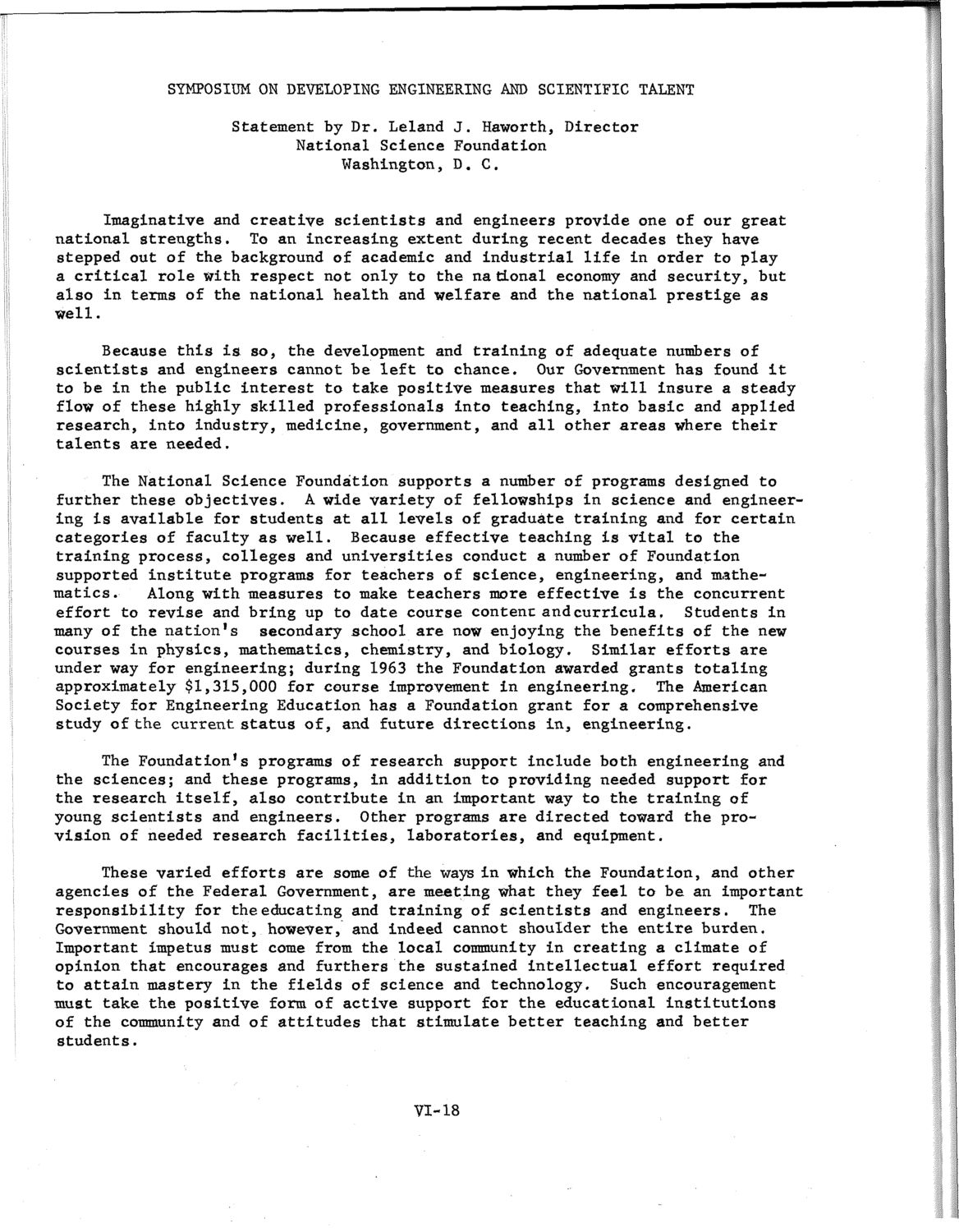| |
| |
Caption: SWE - Proceedings of the First International Conference of Women Engineers and Scientists
This is a reduced-resolution page image for fast online browsing.

EXTRACTED TEXT FROM PAGE:
SYMPOSIUM ON DEVELOPING ENGINEERING AND SCIENTIFIC TALENT Statement by Dr. Leland J. Haworth, Director National Science Foundation Washington, D. C. Imaginative and creative scientists and engineers provide one of our great national strengths. To an increasing extent during recent decades they have stepped out of the background of academic and industrial life in order to play a critical role with respect not only to the na tLonal economy and security, but also in terms of the national health and welfare and the national prestige as well. Because this is so, the development and training of adequate numbers of scientists and engineers cannot be left to chance. Our Government has found it to be in the public interest to take positive measures that will insure a steady flow of these highly skilled professionals into teaching, into basic and applied research, into industry, medicine, government, and all other areas where their talents are needed. The National Science Foundation supports a number of programs designed to further these objectives. A wide variety of fellowships in science and engineering is available for students at all levels of graduate training and for certain categories of faculty as well. Because effective teaching is vital to the training process, colleges and universities conduct a number of Foundation supported institute programs for teachers of science, engineering, and mathematics. Along with measures to make teachers more effective is the concurrent effort to revise and bring up to date course content and curricula, Students In many of the nation's secondary school are now enjoying the benefits of the new courses in physics, mathematics, chemistry, and biology. Similar efforts are under way for engineering; during 1963 the Foundation awarded grants totaling approximately $1,315,000 for course improvement in engineering. The American Society for Engineering Education has a Foundation grant for a comprehensive study of the current status of, and future directions in, engineering. The Foundation's programs of research support include both engineering and the sciences; and these programs, in addition to providing needed support for the research itself, also contribute In an important way to the training of young scientists and engineers. Other programs are directed toward the provision of needed research facilities, laboratories, and equipment. These varied efforts are some of the ways in which the Foundation, and other agencies of the Federal Government, are meeting what they feel to be an important responsibility for the educating and training of scientists and engineers. The Government should not, however, and indeed cannot shoulder the entire burden. Important impetus must come from the local community in creating a climate of opinion that encourages and furthers the sustained intellectual effort required to attain mastery in the fields of science and technology. Such encouragement must take the positive form of active support for the educational institutions of the community and of attitudes that stimulate better teaching and better students. VI-18
| |